Meet the new students at W&M’s Batten School of Coastal & Marine Sciences at VIMS
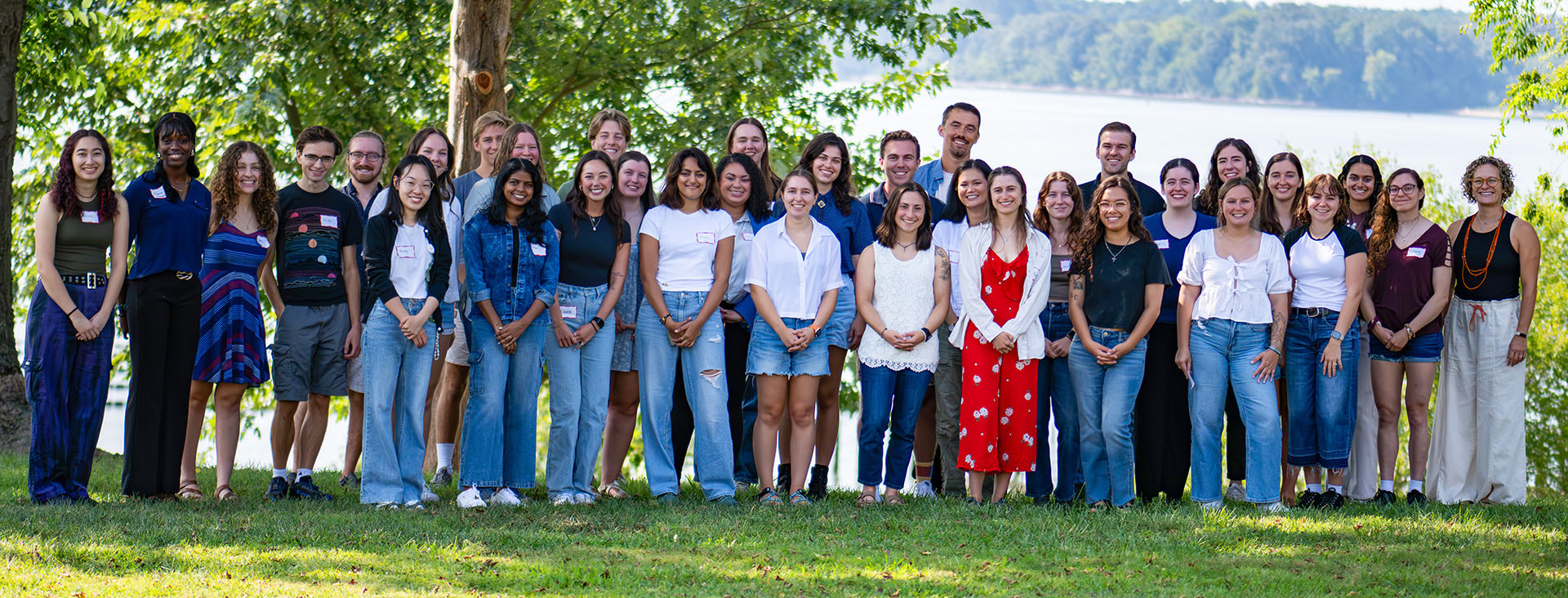 William & Mary’s Batten School of Coastal & Marine Sciences welcomed its largest class in history this year as 35 students entered its M.A., M.S. and Ph.D. programs. The class represents increased interest in attending the Batten School at Virginia Institute of Marine Science (VIMS), which received nearly 60% more applications compared to 2023.
William & Mary’s Batten School of Coastal & Marine Sciences welcomed its largest class in history this year as 35 students entered its M.A., M.S. and Ph.D. programs. The class represents increased interest in attending the Batten School at Virginia Institute of Marine Science (VIMS), which received nearly 60% more applications compared to 2023.
This year’s matriculating class is impressive and diverse, with students representing numerous states, countries, backgrounds and educational and professional experiences.
“This fantastic group of new students brings a vast diversity of experiences and interests that will now be applied to solving some of the most pressing global grand challenges,” said Derek Aday, VIMS director and dean of the Batten School.
Introducing the new class
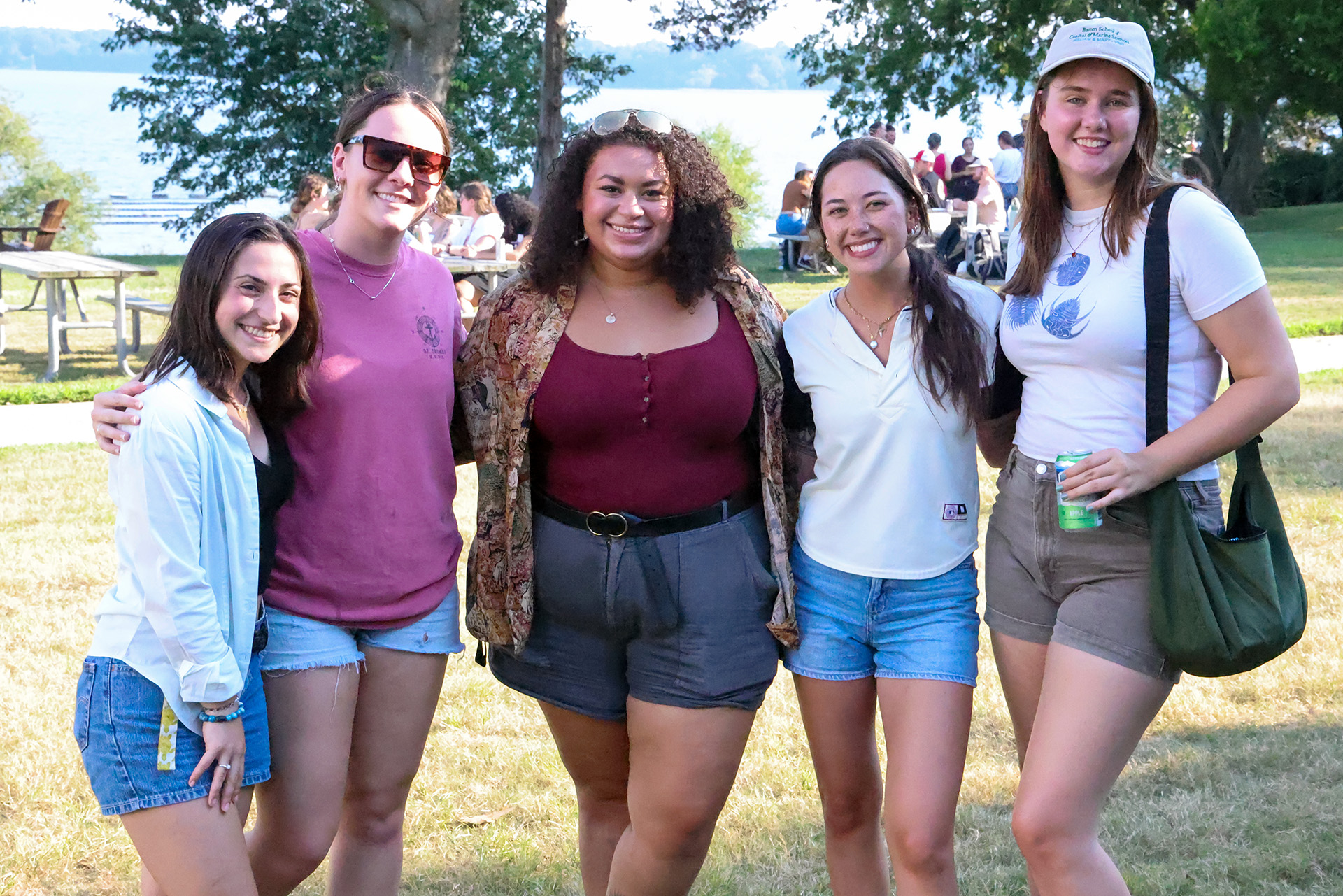 “I have been following the aquaculture program at VIMS for years, and I knew it’s where I wanted to be in order to get exposure to the latest research and technology. I only applied to one school, and I figured if I didn’t get accepted then I would start working,” said Leila Avery, who plans to focus on oyster aquaculture as she pursues her M.S. degree. Avery’s educational, professional and volunteer pursuits have exposed her to all aspects of the oyster industry throughout the U.S., allowing her to create educational tools adopted by multiple State Boards of Education, facilitate public seminars on water quality testing, serve as a social media strategist during an AmeriCorps-based position with the Coalition to Restore Coastal Louisiana and many more impressive accomplishments.
“I have been following the aquaculture program at VIMS for years, and I knew it’s where I wanted to be in order to get exposure to the latest research and technology. I only applied to one school, and I figured if I didn’t get accepted then I would start working,” said Leila Avery, who plans to focus on oyster aquaculture as she pursues her M.S. degree. Avery’s educational, professional and volunteer pursuits have exposed her to all aspects of the oyster industry throughout the U.S., allowing her to create educational tools adopted by multiple State Boards of Education, facilitate public seminars on water quality testing, serve as a social media strategist during an AmeriCorps-based position with the Coalition to Restore Coastal Louisiana and many more impressive accomplishments.
Others are interested in a change of pace and aligning their professional futures with personal passions.
Jack Hatch earned his undergraduate degree from W&M and set out to work in the financial sector. However, he grew weary of his computer-oriented profession and began longing for a career related to his love for the outdoors. He’s now entering the Batten School’s M.A. program, which combines traditional advanced coursework in coastal and marine science with professional skill building through an internship and capstone project.
“I grew up in Fredericksburg, VA, and I spent a lot of time fishing on the Chesapeake Bay,” said Hatch. “I knew William & Mary had a lot to offer in relation to marine science from my undergraduate experience. I’m hoping to specialize in work related to fisheries, so I’m looking forward to joining the team out in the field.”
Grace Hancock was on a pre-med track at Kalamazoo College in Michigan when one of her professors invited her to his lab to learn more about his research involving fish.
“After that I was hooked, I knew I wanted to focus on marine science,” said Grace, who moved back home to Louisiana after graduating to work as a laboratory technician in several labs and ichthyology collections before applying to the Batten School to pursue a Ph.D. on a master’s bypass track. “Once I started working on the Gulf Coast, I began hearing more about VIMS. I’m hoping to study how environmental stressors impact the physiological traits of different fish, possibly focusing on the invasive blue catfish.”
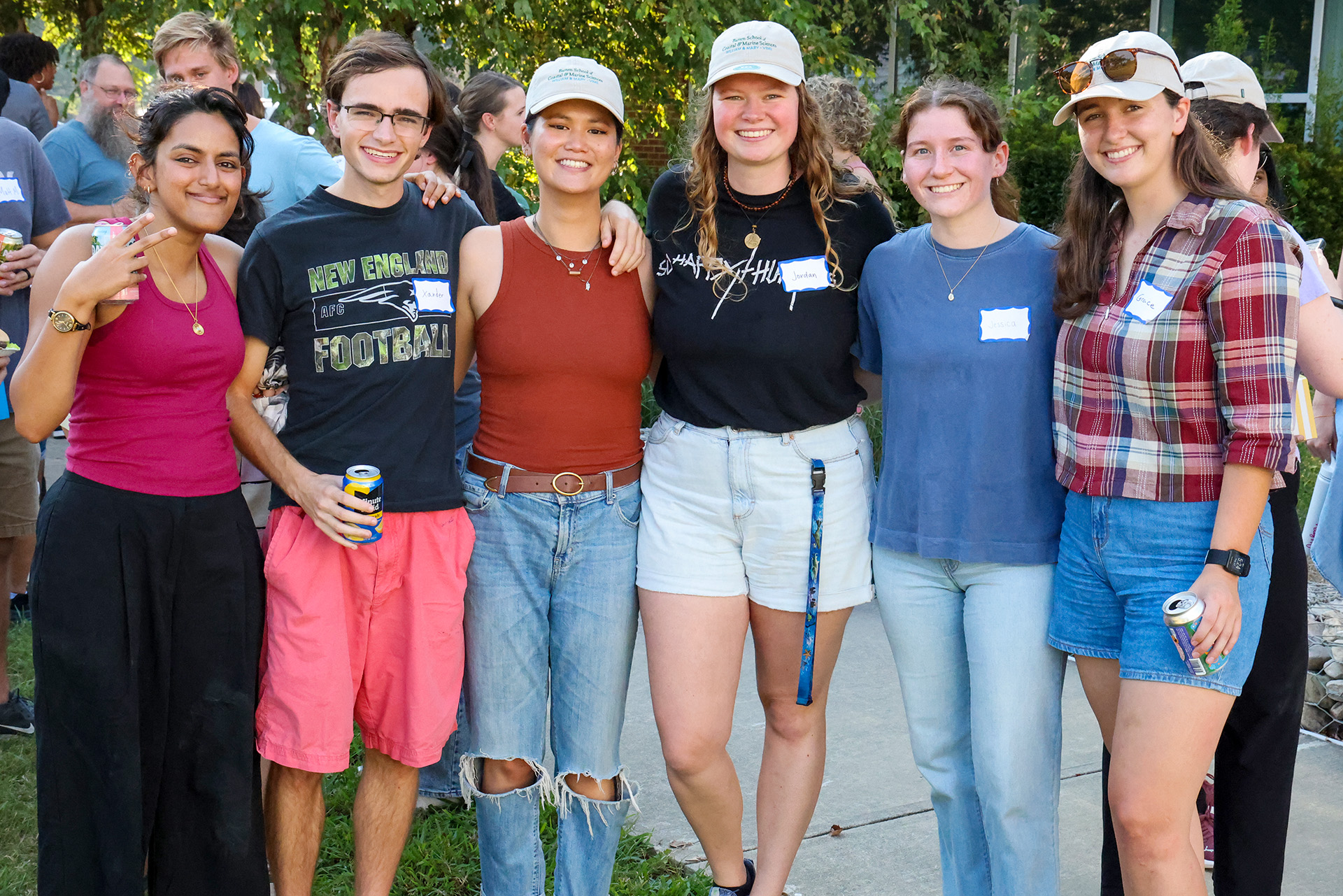 Jessica Fergel gained exposure to coastal and marine sciences as an undergraduate student at W&M, after entering as a transfer student from a two-year community college. Majoring in biology with a minor in marine science, she began working with Batten School Professor Donna Bilkovic on living shoreline research.
Jessica Fergel gained exposure to coastal and marine sciences as an undergraduate student at W&M, after entering as a transfer student from a two-year community college. Majoring in biology with a minor in marine science, she began working with Batten School Professor Donna Bilkovic on living shoreline research.
“I really enjoyed working with Donna and everyone at the VIMS Center for Coastal Resources Management,” said Fergel. “Our research is evaluating the effectiveness of living shorelines in relation to their nursery habitat and erosion control functions. I’m excited to continue working with the team.”
Below are just a few of the new class’s highlights:
- 35 students (6 M.A.; 14 M.S.; 9 M.S. bypass; 6 Ph.D.)
- Eight students hail from Virginia, while 27 are out-of-state, including four international students.
- Approximately 20% are first-generation college students.
- More than 30% have published in a peer-reviewed journal on topics including pollution, population genetics, geochemistry, aquatic viruses and more.
- More than 40% have formal research experience, including volunteer efforts through AmeriCorps; internships with the National Science Foundation (NSF), the National Oceanic and Atmospheric Administration (NOAA) and other public, private and academic institutions; as well as field-based research experience in the U.S. as well as China, Costa Rica and the Gulf of Mexico.
Setting the stage for success
Like most orientations, the Batten School’s featured icebreakers. On the first day, the students were presented with a list of “bragging rights” submitted by their classmates. The list was as diverse as it was impressive, featuring accomplishments such as: studying the impact of pollutants on lemurs in Madagascar; hosting and participating in environmental podcasts; working, interning and volunteering with organizations including AmeriCorps, NOAA, NSF, the Nature Conservancy, the National Park Service and others; competing in NCAA sports; producing documentaries; overcoming familial hardships to become first-generation, international college students; completing the longest horse race in the world in Mongolia; and so much more.
“A key aspect of the Batten School will be to provide the students and faculty with all of the tools necessary to ensure student success while matriculating through a rigorous academic program,” said Associate Dean for Academic Affairs Siddhartha Mitra. According to Mitra, numerous workshops will be offered that focus on mentor-mentee shared expectations, inclusive mentoring, effective time management and addressing the “fear of failure.”
“We have assembled a team of faculty, staff and students to bring in external speakers that are not only top-notch coastal and marine science researchers and advisors but who also excel at teaching practical skills for interdisciplinary education. Not surprisingly, some of these individuals happen to be successful Batten School alumni,” added Mitra.
The Batten School’s Graduate Student Association (GSA) played a significant role in helping to acclimate the new class to resources at the Batten School and VIMS. As an orientation tradition, they host a cookout every year to welcome the new students and create opportunities for them to engage with other students as well as faculty and staff.
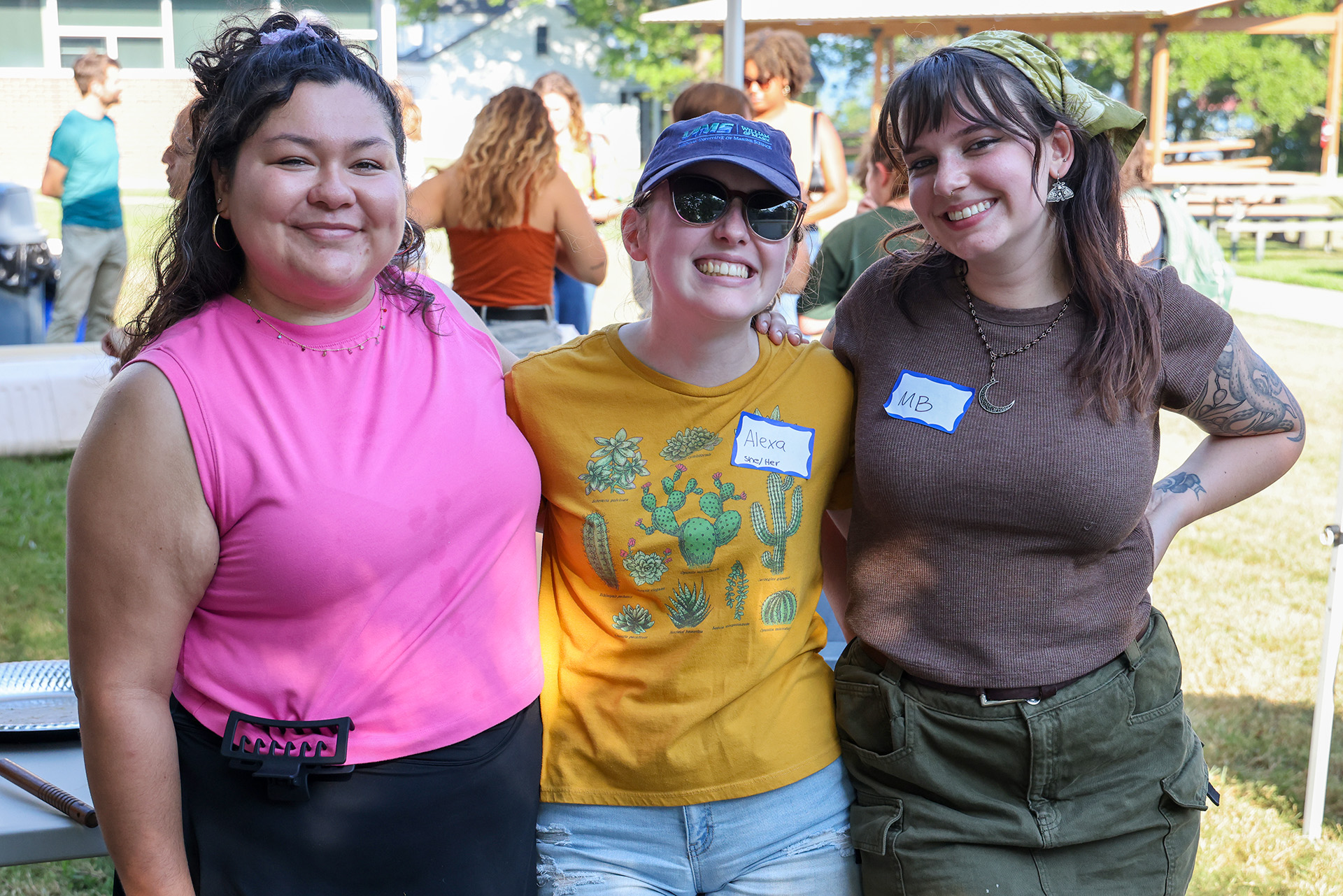 GSA co-president Andie Munoz reflected on her personal experience as a new student to help guide GSA’s work.
GSA co-president Andie Munoz reflected on her personal experience as a new student to help guide GSA’s work.
“Our goal is to make them feel welcomed and already a part of the community. They get exposed to the school and program through their formal orientation, but the cookout is an opportunity to meet everyone in a more casual setting,” said Munoz. “In my first year, I was told that I was here to learn and the experience that I gain matters more than a perfect grade. I try to pass that advice along. That, and have fun.”
“My recommendation is to simply walk up and introduce yourself to people,” said second year M.S. student Madison Griffin. “This is such a great community, and everyone has similar passions. Nobody is going to be mean.”
In addition to the cookout at the end of their second day, orientation featured a number of other formal and informal activities.
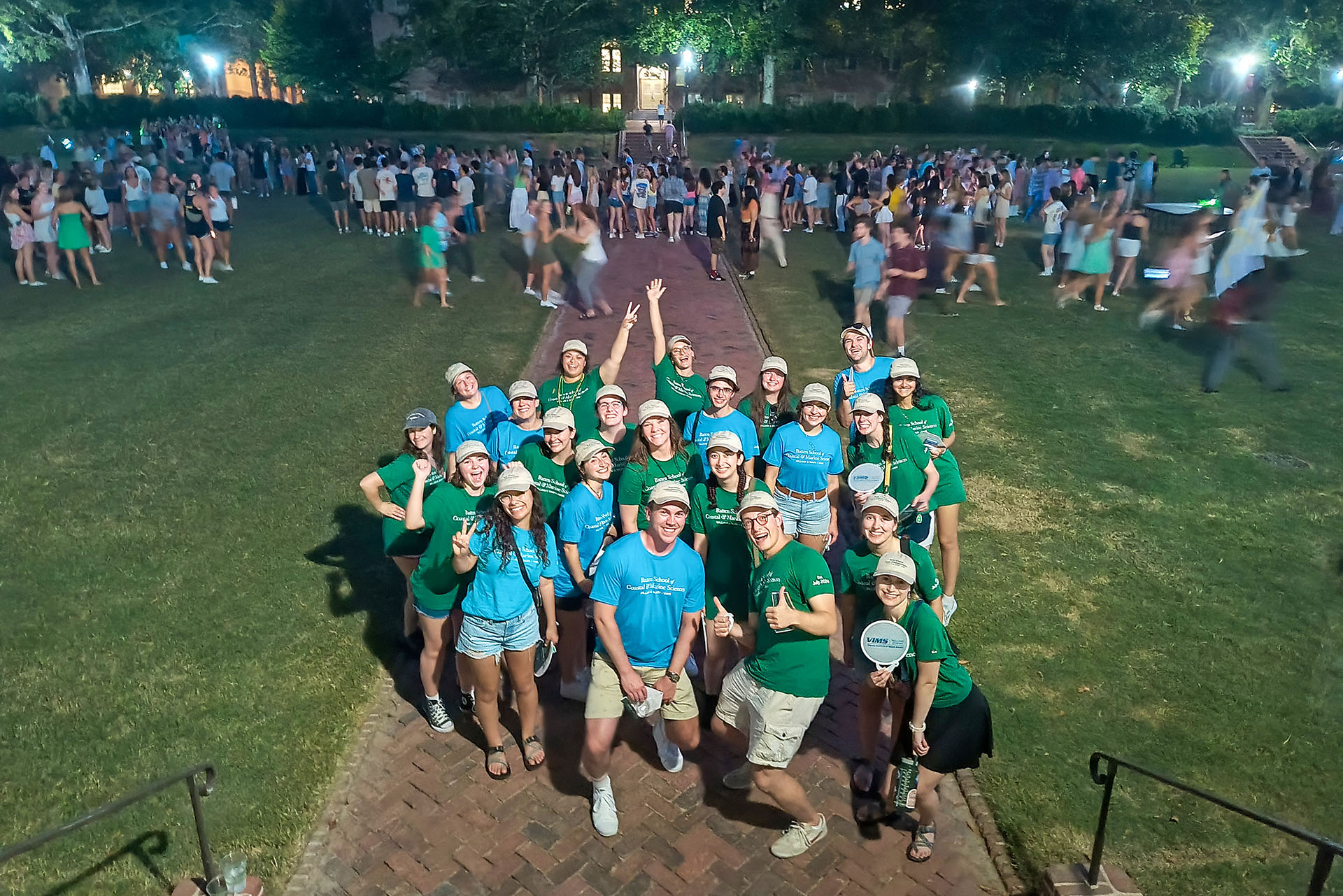 The students toured the Gloucester Point Campus; met with administrators, mentors as well as their academic advisors; learned about resources available through the William J. Hargis Jr. Library; and, of course, represented the Batten School at W&M’s formal Convocation Ceremony.
The students toured the Gloucester Point Campus; met with administrators, mentors as well as their academic advisors; learned about resources available through the William J. Hargis Jr. Library; and, of course, represented the Batten School at W&M’s formal Convocation Ceremony.
At the end of the week, they traveled to the VIMS Eastern Shore Laboratory in Wachapreague, VA, for field orientation. The overnight excursion offered an opportunity to bond with classmates, meet staff and instructors and visit a variety of coastal habitats on the Eastern Shore.
“Some of the friends you make in the first couple of days will stick with you through your entire program,” said Munoz. “It can be scary at first, but we’re a close community and want them to know they can reach out to us for help and not feel isolated as a cohort.”

